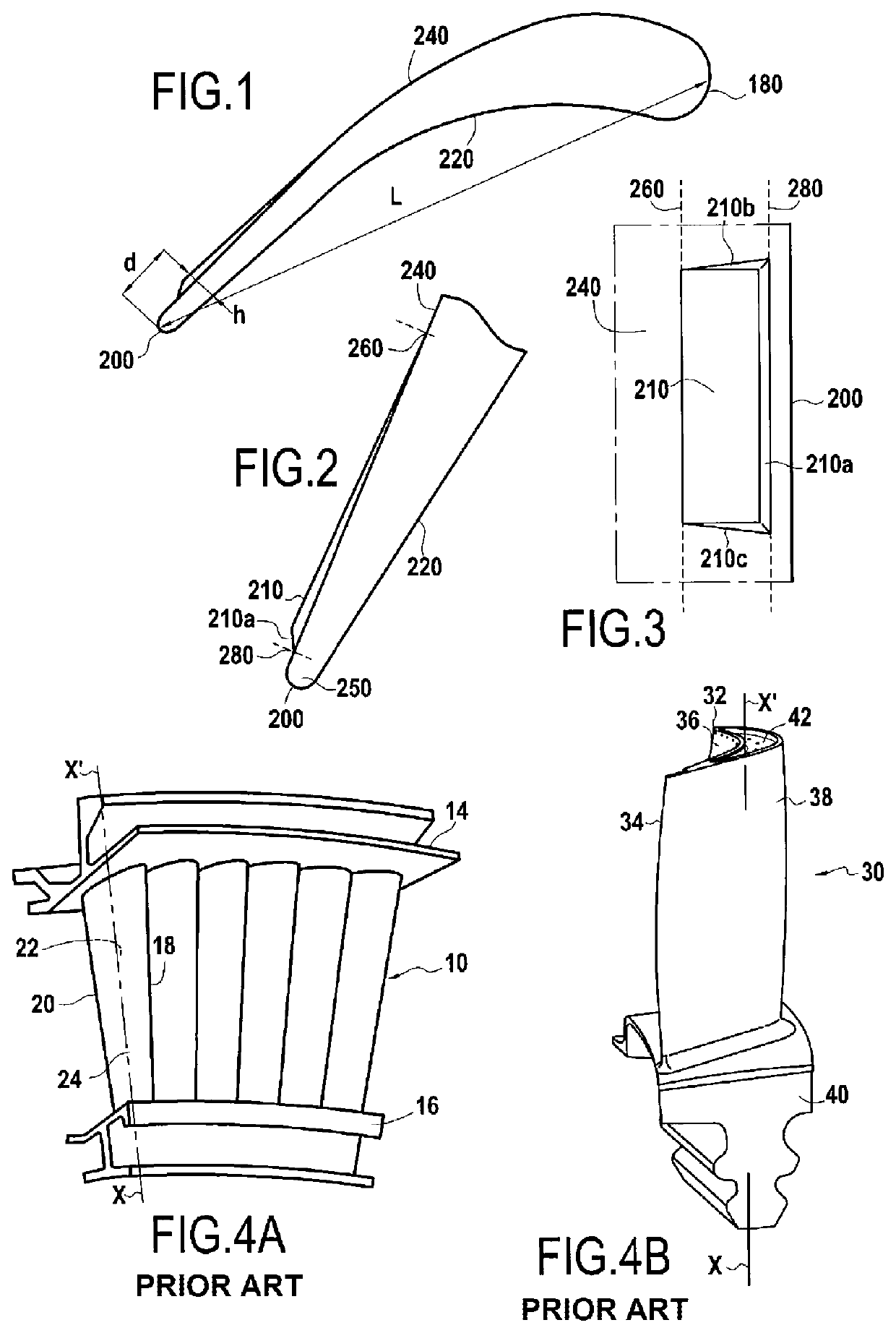Rough cast blading with modified trailing edge geometry
a technology of trailing edge geometry and rough cast blades, which is applied in the direction of machines/engines, foundry patterns, moulding apparatus, etc., can solve the problems of not being able to obtain blading, additional material removal steps to the rough cast blades not being able to meet the final shape of the aerodynamic profile and its dimensional tolerances, and deteriorating the performance of the turbine, so as to achieve the effect of what is desired
- Summary
- Abstract
- Description
- Claims
- Application Information
AI Technical Summary
Benefits of technology
Problems solved by technology
Method used
Image
Examples
Embodiment Construction
[0027]FIGS. 1 and 2 represent an aerodynamic profile or airfoil of a rough cast blading intended to form a turbine blade including a leading edge 18 and a trailing edge 20 opposite each other and connected by a pressure sidewall 22 and a suction sidewall 24 extending between a blade root and a blade tip. For the clarity of the description which follows, the elements of the rough cast blading have the same numbers as those of the finished blade to within a factor of 10. Thus, a leading edge of the rough blading 180 corresponds to the leading edge of the finished blade 18, a trailing edge of the rough blading 200 corresponds to the trailing edge of the finished blade 20, a pressure sidewall of the rough blading 220 corresponds to the pressure sidewall of the finished blade 22 and a suction sidewall of the rough blading 240 corresponds to the suction sidewall of the finished blade 24.
[0028]In accordance with the invention, in order to allow the production on the finished blade of a thi...
PUM
| Property | Measurement | Unit |
|---|---|---|
| thickness | aaaaa | aaaaa |
| thickness | aaaaa | aaaaa |
| thickness | aaaaa | aaaaa |
Abstract
Description
Claims
Application Information
 Login to View More
Login to View More - R&D
- Intellectual Property
- Life Sciences
- Materials
- Tech Scout
- Unparalleled Data Quality
- Higher Quality Content
- 60% Fewer Hallucinations
Browse by: Latest US Patents, China's latest patents, Technical Efficacy Thesaurus, Application Domain, Technology Topic, Popular Technical Reports.
© 2025 PatSnap. All rights reserved.Legal|Privacy policy|Modern Slavery Act Transparency Statement|Sitemap|About US| Contact US: help@patsnap.com

